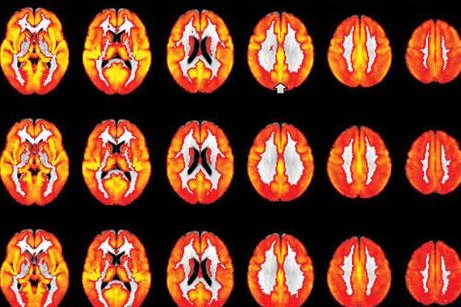WASHINGTON, Oct. 29 (UPI) -- If anything, you'd think disgust would be one thing the average voter -- both Democrats and Republicans -- had in common. But a new study suggests how a person reacts to a single disgusting image can reveal the person's political leanings, either liberal or conservative.
Researchers at Virginia Tech came to their conclusion after showing disgusting imagery while participants brain activity was recorded using functional magnetic resonance imagery, or an fMRI machine. After the images were collected, researchers compared the results to each participant's political persuasions, as measured by a test called the Wilson Patterson inventory. Their analysis -- aided by computer modeling -- found a predictable relationship between the fMRI images and the political survey results.















